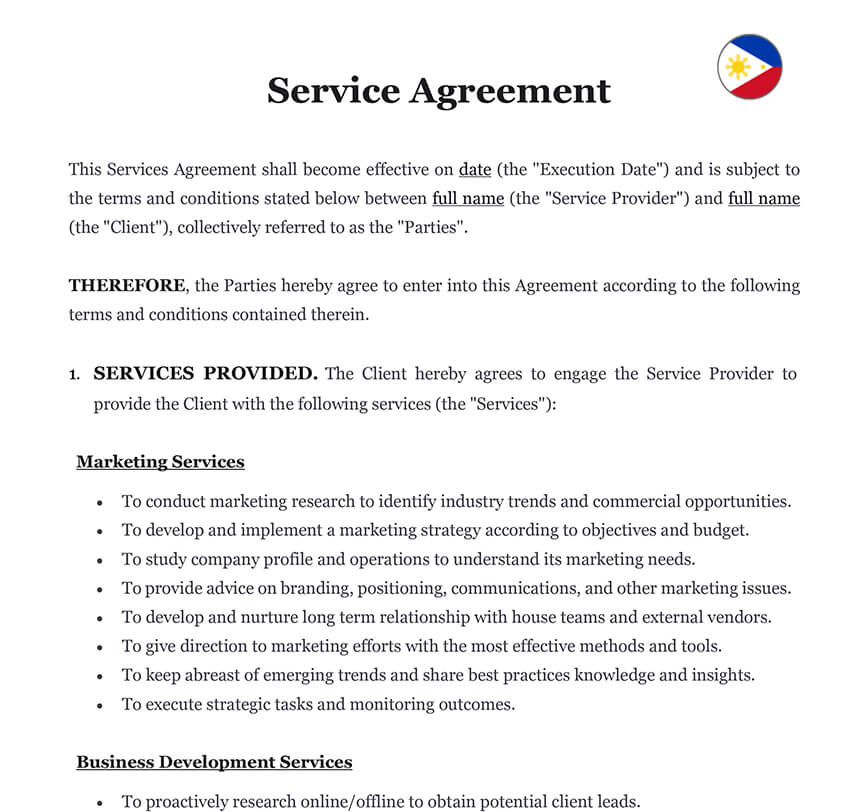Ready to use legal template
Drafted by experienced lawyers
Compliant with Filipino law
Ready to use legal template
Drafted by lawyers
Compliant with Filipino law
Home › Business contracts › Service agreement
Learn more about Service Agreement in Philippines
A Service Contract is an agreement between two or more parties to do certain activities. These might include things like tuning up a car or painting a house. Contracts for Services are distinct and distinct from contracts for products. Service Contracts are most commonly used by consultants, freelancers, and contractors. This sort of contract involves one person or party paying another to perform a certain act. A “Service Agreement” is a legal document that describes the conditions of a service provided by one party to another in exchange for payment. When two parties enter into a legal contract, they are legally protecting both the individual worker and the corporation. A Consulting Agreement can also be used for highly specialized services or for a highly competent service provider.
Table of contents
What is a Service Agreement?
A Service Agreement is a type of Commercial Contract that seeks to codify the connection between a firm, in this case a service provider, and its client. This contract is intended to define both parties’ rights and duties.
Many businesses use service providers in exchange for a fixed fee. Whether it is computer repair, communal catering services for businesses, cleaning services, security services… Because of the multiplicity of scenarios, there is no standard service supply contract. It is therefore critical to obtain a model that can be altered and updated to your specific needs, or, in certain situations, to retain the services of a lawyer who specializes in its preparation.
Why draft a written Service Contract?
There is no requirement for the Service Agreement to be in writing. However, it is strongly advised that it be in writing to avoid future disputes. Furthermore, in the professional sector, estimations are employed if no agreement is made. This entails providing a written document to the client outlining the services that the expert will provide, as well as their price and the date of completion, even before an agreement is reached between the parties.
This estimate allows the customer to have a clear notion of the service that will be performed and, in the event that its share is accepted, to successfully realize its agreement with the fulfillment of the anticipated services. The formulation of an estimate has different effects for both the professional and the customer:
| ➤ It absolutely engages the professional on the pricing and techniques of service implementation (this is why it can be advisable to limit the validity period of its estimates). |
| ➤ The consumer is only committed when he indicates a desire to entrust the expert with the service's implementation (before that he remains free and can even entrust the service to a competitor). |




